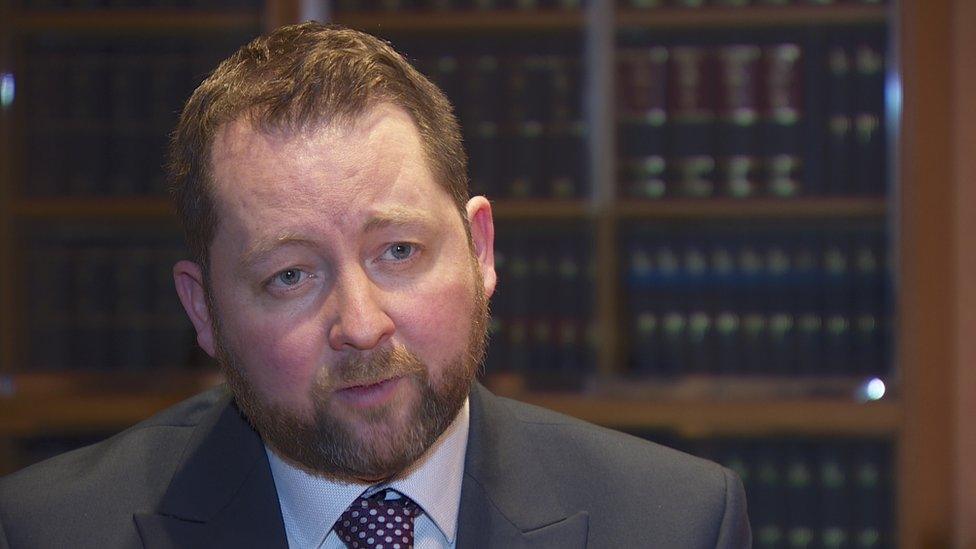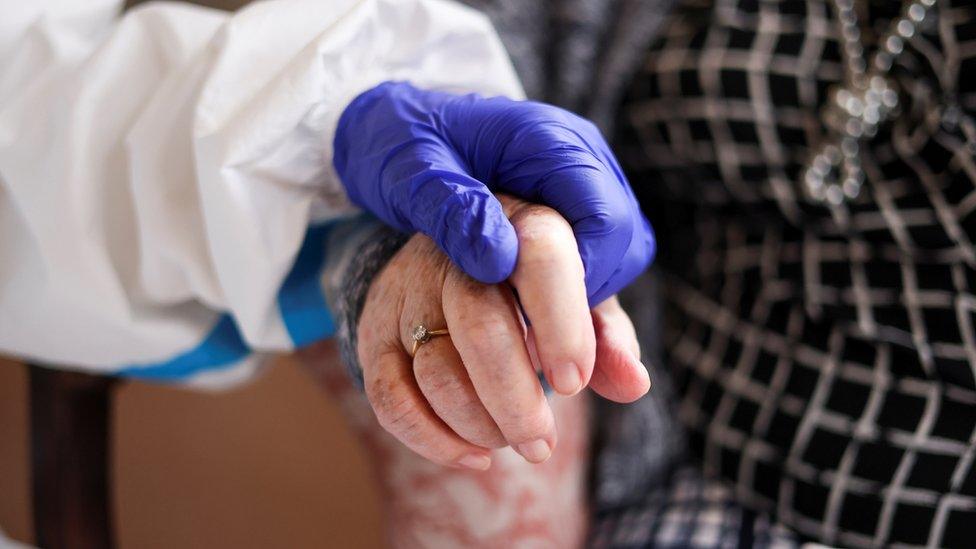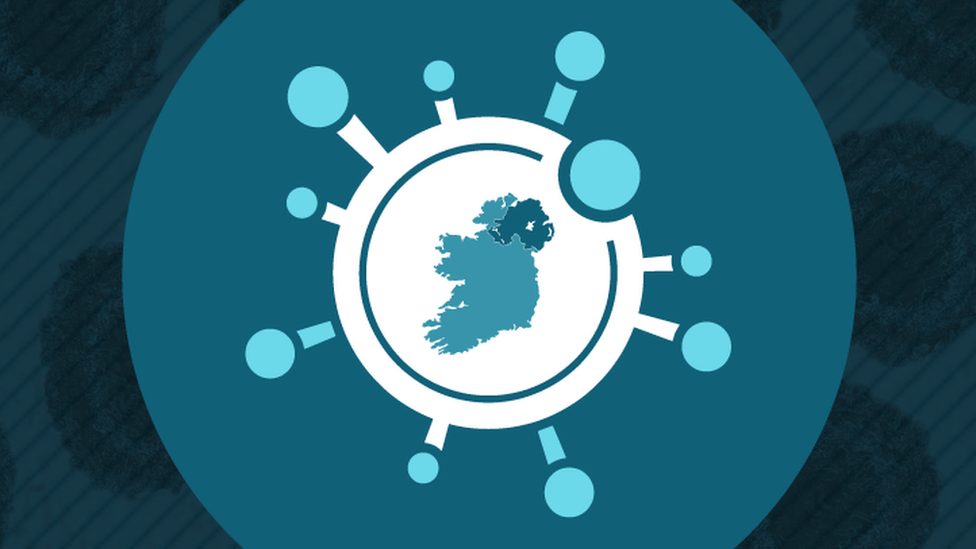Covid-19: Older people commissioner urges more care home staff to get jab
- Published

Eddie Lynch says there is a worry that more care home outbreaks means more restrictions around visiting
The Commissioner for Older People in Northern Ireland, Eddie Lynch, has urged more care home staff to get vaccinated.
Official figures show that more than one in five of local care homes are currently dealing with an outbreak.
About a quarter of care home staff have not yet been vaccinated.
Mr Lynch said the "concerning" figures reflected the higher community transmission happening across Northern Ireland.
He said he had been briefed that most of the outbreaks were related to staff infections.
However he said it was important to "look behind the numbers".
An outbreak is classified as being when there are two or more cases in a care home.
"That could be residents or staff so there are some outbreaks where there are small numbers of cases," he told BBC's Good Morning Ulster programme.
"The system now is that there is weekly testing of staff, picking up people without symptoms and they then go into self-isolation," he explained.
He said that unlike last year the number of people getting seriously ill from Covid-19 in a care home setting is low.
'Not as ill and not dying'
However he said it was important not to be "complacent".
He said his appeal to staff would be: "Don't delay - go and get your jab now."
The Department of Health's latest figures indicate that 103 of Northern Ireland's 483 care homes are currently dealing with an outbreak.
About 75% of care home staff and 90% of residents have been vaccinated.
Sandra Aitcheson, assistant director of nursing at the Public Health Agency (PHA), echoed his comments.
She said there were "many routes of access" for Covid-19 to get into care homes due to "staff, visitors and care partners coming in".
"There are people who are doubly vaccinated still getting Covid, but they are not as ill and not dying so it is working."
She said testing is hugely important and "we test staff every week, we test residents every month and 46 of our outbreaks are what we call asymptomatic".
"Nobody in those 46 care homes has any symptoms.
"With our visiting pathway at the moment, residents can go out of care homes so there are many routes of access - we can never eliminate coronavirus coming in."
In England, vaccinations for care home staff will become compulsory in October.
However there are no similar plans for Northern Ireland.

Mr Lynch said the situation would be monitored.
"It is very difficult when you get into the situation where you are forcing people to be vaccinated," he said.
"At present, what we are seeing is that the vaccination has worked in protecting the vast majority of people in care homes. If that changes then we would need to look at that again," he added.
'Fertility concerns'
Pauline Shepherd, chief executive of Independent Health and Care Providers, said a lot of work was being undertaken to encourage staff who have yet to be vaccinated do so.
"We are working on the other staff who have not yet been vaccinated and taken all steps to encourage," she said.
Making vaccinations for staff mandatory may not be an option, she added.
"We are facing a lot of difficulties in retaining staff, obviously it is a very demanding job, they've had a very demanding time and we are trying everything to try to retain the staff we have.
"With mandatory vaccination, I think we would lose more."
Ms Aitcheson told BBC News NI the PHA had been working with care homes that have low uptake.
She said a factor regarding vaccinations was "a lot of young women in care homes who are concerned about their fertility".
Experts have said that claims the Covid vaccine could affect female fertility are unfounded.
"We are providing them with information and identifying challenges and giving solutions to make sure it's effective," she added.

'I just want to hug her'
Pamela arrived in Northern Ireland from the USA the day before her mum's care home closed to visitors.
She flew in last month but has not yet been able to visit her mother, who she hasn't seen for two years.
Speaking to BBC NI's Good Morning Ulster programme, she said: "I'd say everybody can agree that the first thing you want to do when you see your mother, even if you've not seen her in two weeks or two years, the first thing you want to do is hug her and just have that touch to let her know that there's someone there who wants to see her and hug her."
Nominated carers are still able to go into care homes and Pamela's brother visits every week.
She is asking the sector to think of residents' other loved ones whose visits continue to be restricted.
"I think about my mum all the time - who's there, who's putting her in a seat, is there someone talking with her, is there someone laughing with her, is there someone smiling at her?"
She said she understood the need for caution, adding: "I just want to reach out all these frontline workers and say, we appreciate you immensely we never, ever forget that you're out doing a job that we can't do."

Mr Lynch said one of the main concerns was the impact outbreaks had on visiting.
"We saw over the past year the devastating effect when families were denied visits to relatives and knock-on effect on the mental health of residents and families," he said.
"We need to control these outbreaks as soon as possible so we do not face a situation where any care home has to restrict visiting," he added.
He said care homes were in a difficult situation as they had to balance up the risks.
"The default position is that where visiting can take place it should," he added.
- Published4 August 2021
